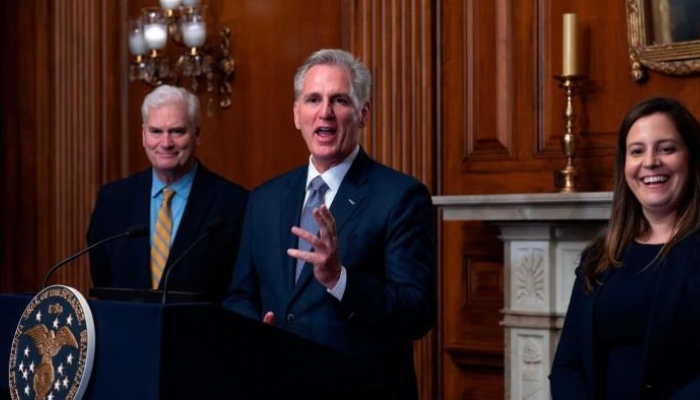Relief as Lawmakers Avert Government Shutdown
Anúncios
Corporate America can breathe a collective sigh of relief as lawmakers narrowly avoided a chaotic shutdown of the federal government. This potential shutdown had been a source of concern for business leaders and economists who warned of its adverse effects on the economy, causing uncertainty, disruptions, and damaging confidence.
The looming shutdown seemed almost inevitable until House Speaker Kevin McCarthy made a sudden shift in direction. He moved to pass a bill with support from Democrats, leading to President Joe Biden signing the bill into law just minutes before the midnight Saturday deadline, ensuring government funding through November 17.
Neil Bradley, chief policy officer at the US Chamber of Commerce, expressed gratitude that the “adults” in Congress stepped up to prevent a shutdown and the harm it would have inflicted on millions of Americans and small businesses.

The Chamber urged Congress to make the most of these 45 days by completing the appropriations process, providing essential funding to support Ukraine in its battle against Russian aggression, and taking steps to secure the border.
Business Roundtable CEO Joshua Bolten also commended lawmakers for keeping the government open and encouraged them to pass a long-term spending measure as soon as possible.
On Wall Street, the reaction was more subdued. US stocks mainly traded lower on Monday morning, with concerns about rising bond yields and the Federal Reserve’s fight against inflation overshadowing the political breakthrough.
Brian Gardner, Stifel’s chief Washington policy strategist, noted that while the averted government shutdown should be positive for the markets by alleviating fears of Washington dysfunction, it is only a temporary reprieve. There is a possibility of a move to remove McCarthy as speaker and another potential budget standoff ahead of November 17.
Despite the relief, the era of good feelings may be short-lived.
In conclusion, the last-minute action by lawmakers to avert a government shutdown has spared the economy from potential turmoil. While this respite is undoubtedly a positive step, it also underscores the ongoing challenges of political gridlock in Washington. As the November 17 deadline approaches, the need for a long-term spending measure and critical decisions on funding for Ukraine and border security remain unresolved. Corporate America and financial markets will be closely watching, hoping for a more lasting solution that provides stability and clarity for the nation’s economic future.
See also: Trump Media’s Wall Street Merger Faces Termination Twist






